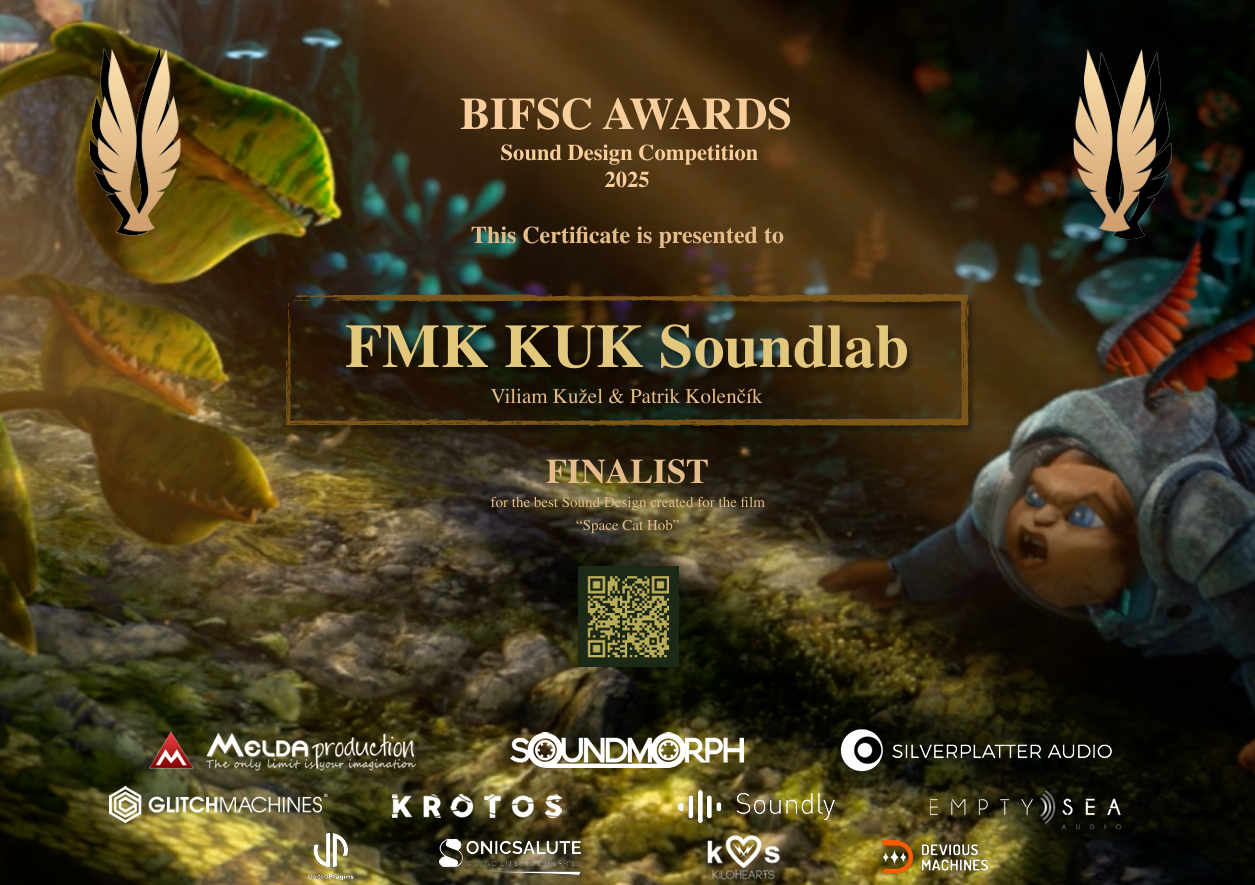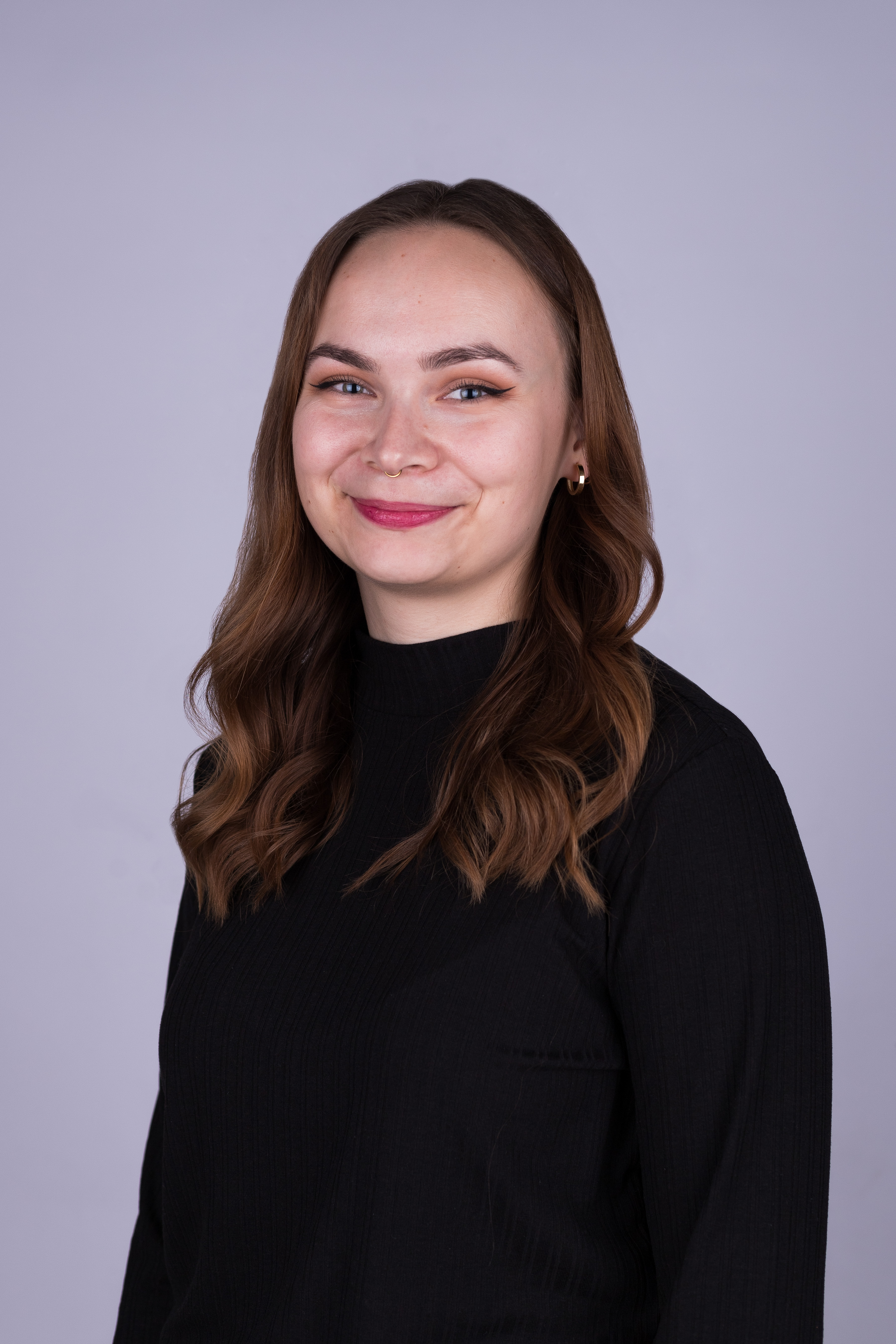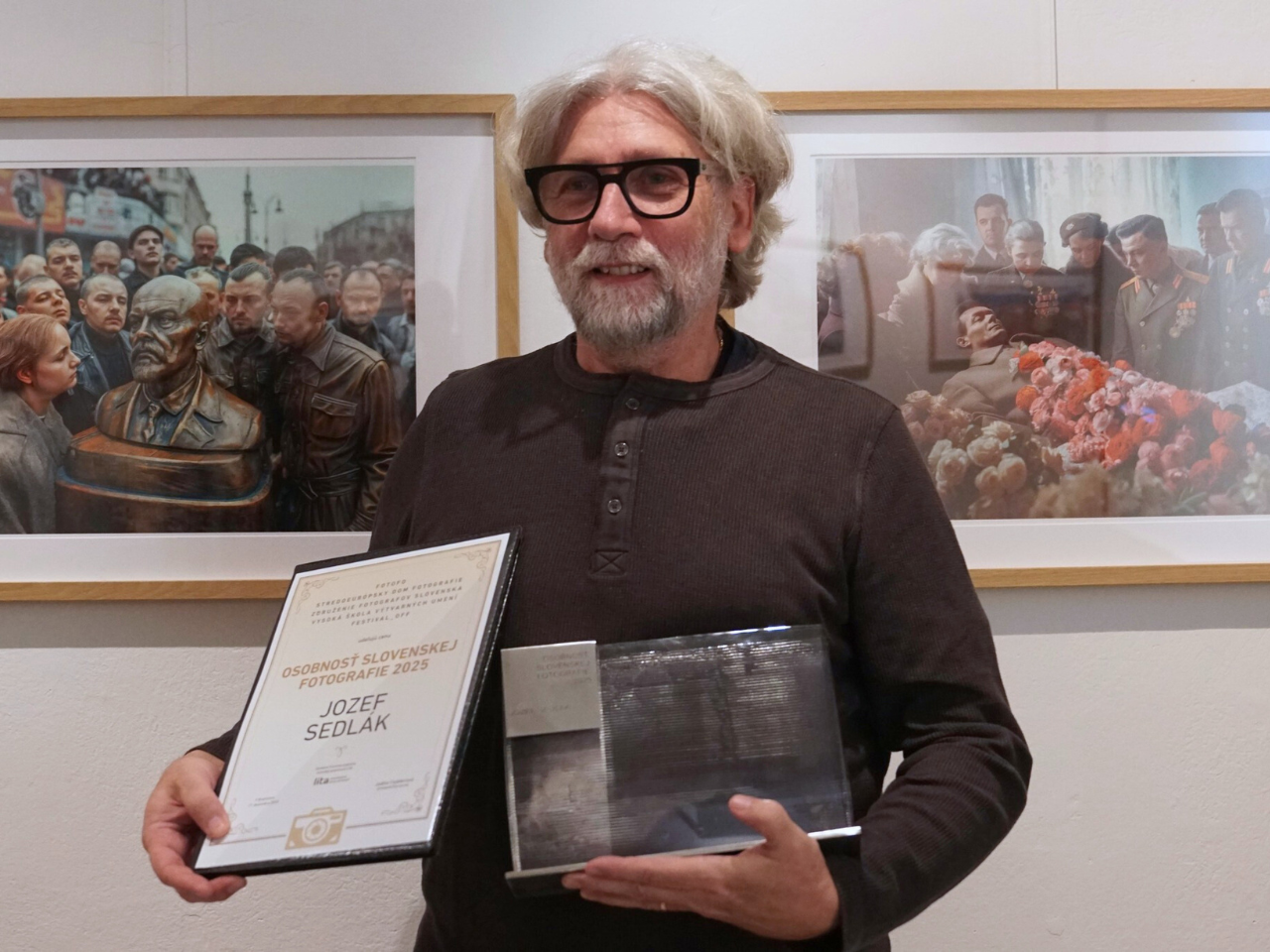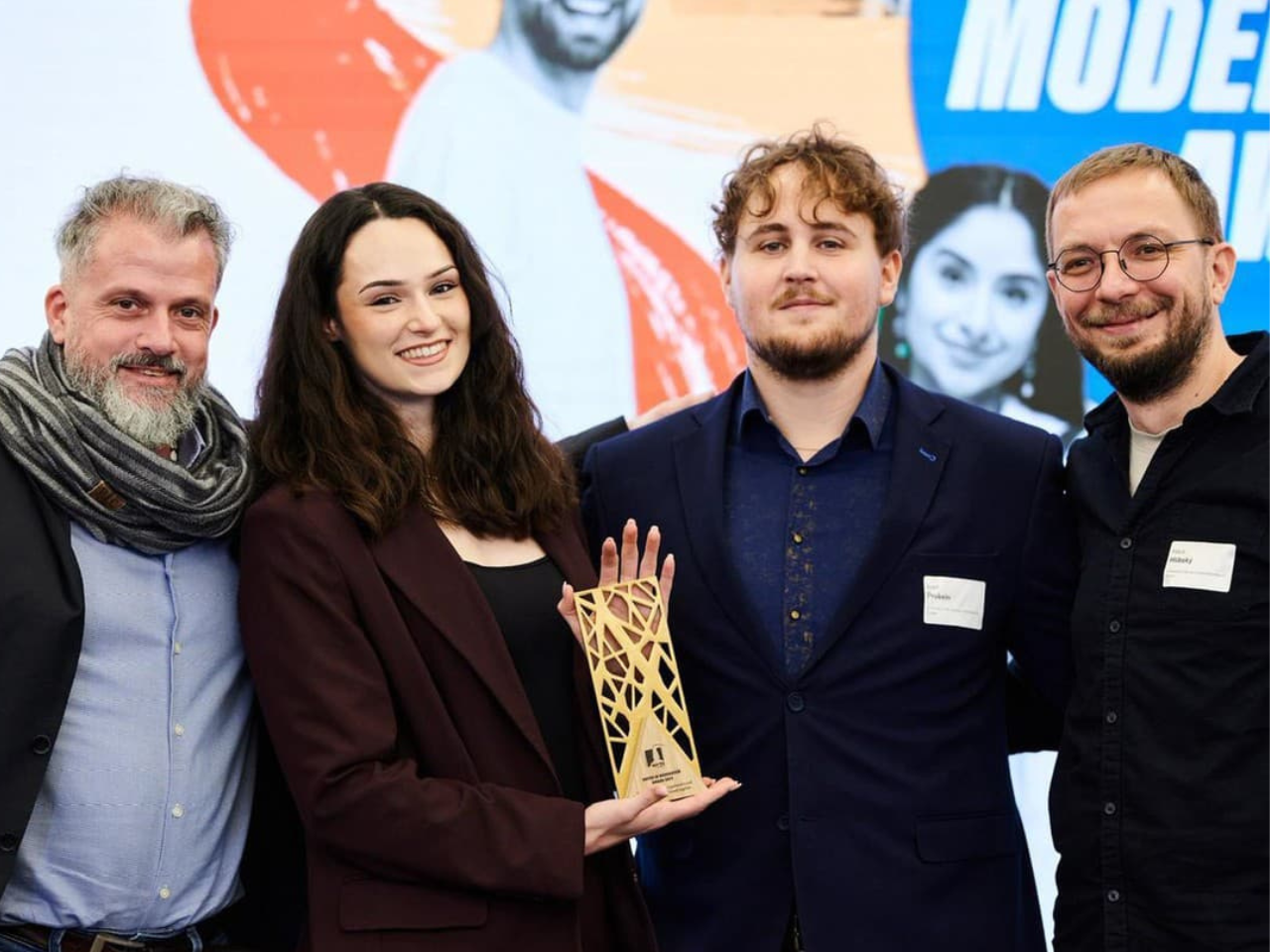
A student and teacher from FMK made it to the finals of a prestigious competition for sound designers in Berlin
The duo, under the name FMK KUK SoundLab, worked on the film's sound from scratch for two months.
Dr. Patrik Kolenčík and student Viliam Kužel participated in the prestigious international competition for sound designers—Berlin International Film Scoring Competition (BIFSC). Under the name FMK KUK SoundLab, their work earned them a place in the finals.
This success is all the more gratifying as it is the first time FMK has participated in BIFSC. "Until now, we have only competed in music composition, so this was a completely new experience for me. It gave me a lot of new ideas and left me with a good feeling about the progress I have made," explained Viliam.
They created the film world from complete silence
The competition began with paying the registration fee and downloading the visual material for the film without sound. They had two months to prepare the material and completed their work in September.
"We each worked on the assignment for about seven to ten full days, but it was spread out over several months. Of course, we worked constantly for the last three to four days before the deadline. Since I have been involved in sound design at a professional level for a long time, it was familiar territory," explained Kolenčík.
He divided the work between himself and Viliam to make the process as smooth as possible. For example, he was responsible for the sounds of footsteps, clothing, and props—physical moving objects. Viliam, on the other hand, was tasked with processing the first round of necessary sounds and then the sounds of atmospheres and weapons.
"Then I mixed it all together and added reverbs—effects that make each scene sound natural according to the space in which it takes place. At the same time, I taught Viliam how to work in Pro Tools, which he will also use in his professional practice. We worked with the tools we own and were given a short license for the tools we used during the competition," said Kolenčík.
"However, Krotos Studio software, with which I have hundreds of hours of experience from real film practice, was absolutely essential in our workflow. I consider this tool to be a significant game changer in the field of sound design—it can simplify and speed up the creative process, giving the sound designer more room for creativity itself. That's why I'm gradually incorporating it into my teaching, so that students can see modern approaches to sound creation and learn to work with the tools used by the professional industry today," added Kolenčík.
You can see the final result in the video below:
Mutual cooperation moved both forward
Given that this was a project on which both a student and a teacher were working, it was important to find the right balance between the two positions and the added value that such cooperation brings. According to Kolenčík, this balance came about quite naturally: "All we had to do was talk about the film in a friendly atmosphere, and together we found solutions for specific scenes. On the other hand, when it was necessary to work independently, we each had our creative moments and worked."
Kolenčík praises the collaboration with the student: "I really like it when a student gains know-how that they can use in practice, and I also like to win," he revealed with a smile.
"Viliam knows how to work hard and stay calm when there seems to be a lot of work to do—and that's the only mindset suitable for working on sound design. I gave him tasks and gave him complete freedom in the creative process. I then provided feedback and instructions on what needed to be improved. But with Viliam, there were often cases where he didn't have to make any further adjustments. He is precise and knows how to perceive a film," said Kolenčík.
Throughout the process, they talked a lot about the film and searched for the character's personality: "The film undergoes various genre transformations, and this must be properly reflected in the sound design," added Kolenčík.

This is not a one-time experience
Viliam also praises the work on the project: "Dr. Kolenčík and I have a long-standing collaboration that I greatly appreciate. I am glad that we have teachers at our school who are so committed and strive to help students develop their potential."
In his own words, Kolenčík is a very experienced sound engineer and sound designer: "I really like his creative ideas and perspectives, which I would never have thought of myself. He offered me a new perspective on projects, filmmaking, and sound itself. I firmly believe that our collaboration will continue, as I still have a lot to learn from him."
This competition gave Viliam valuable practice and real-world experience: "It was my first time working with software that is also used in the professional sphere, which allowed me to try out standard work procedures and workflow. These experiences are not just a one-time thing for me—I know I will use them in the future, whether in other projects or in my career."
The competition motivated them to continue and grow further
The hardest thing for Viliam was learning how to work with the new program. Finding his own system in a completely unfamiliar environment, understanding the functions, and applying them in practice was not easy, but it was this challenge that pushed him the most.
"This year's competition and our placement showed me that our work makes sense. It motivated me to continue and improve. Becoming finalists in a global competition not only helped me gain experience, but also improved my resume," Viliam added.
However, the collaboration does not end there. The competition has two sections—sound design and sound scoring (the first section involves sound design, the second film music—both for the same film). The duo made it to the finals of the sound design section. They are already planning to compete in the sound scoring category, in which they have experience from other international competitions.
Image source: PK, VK



